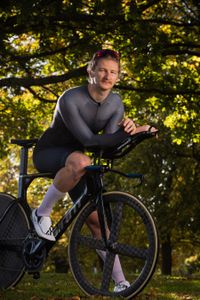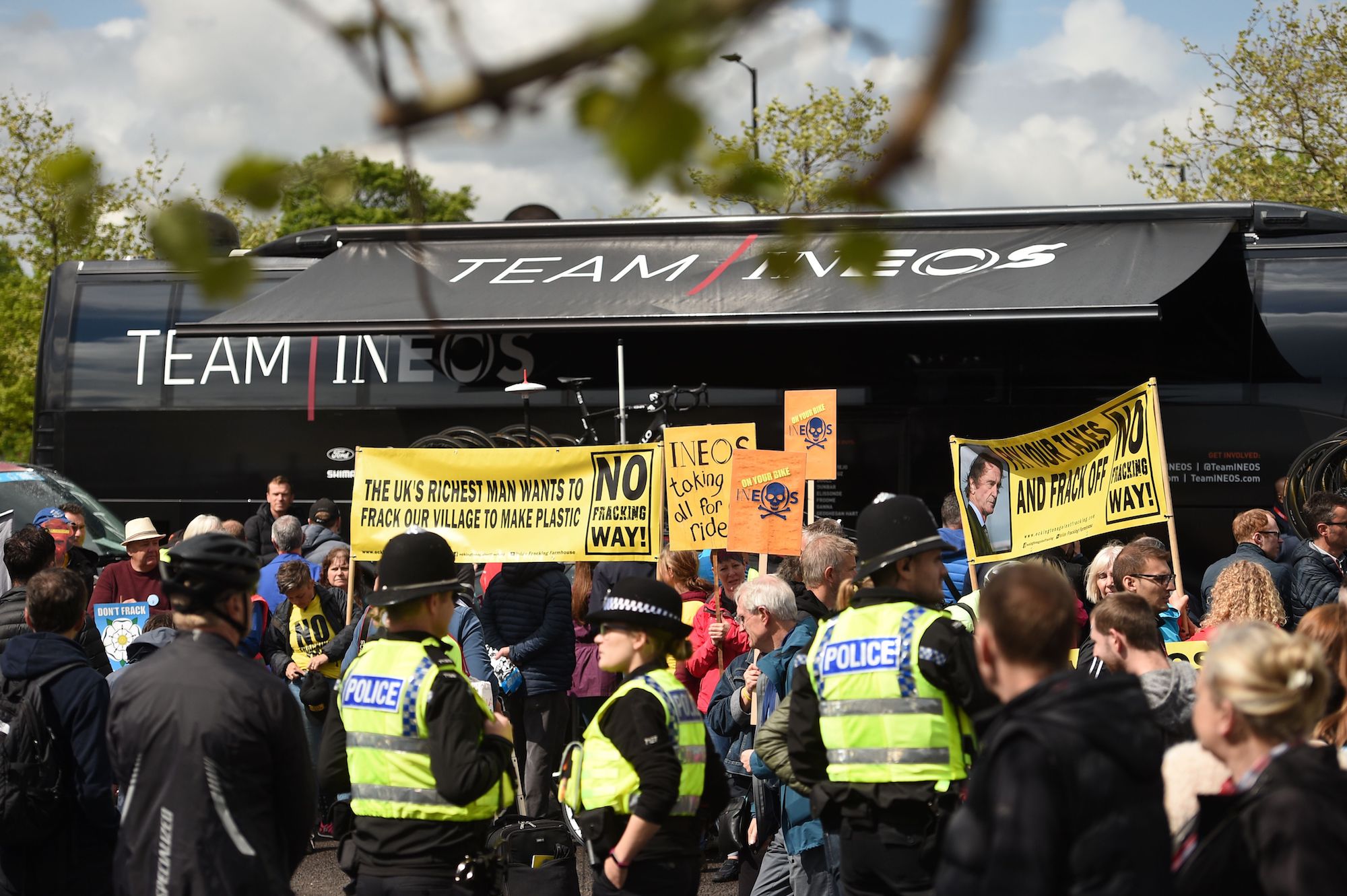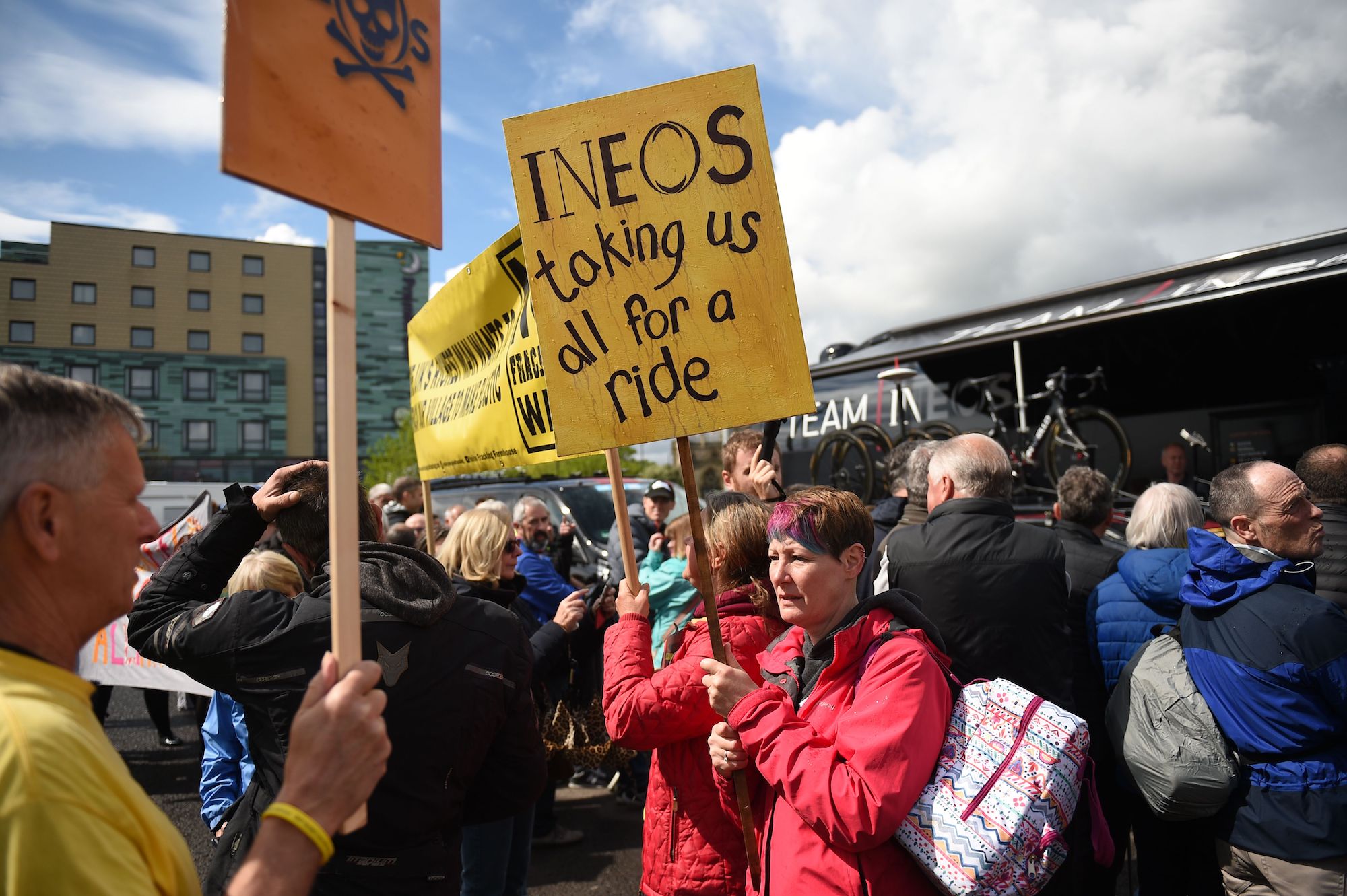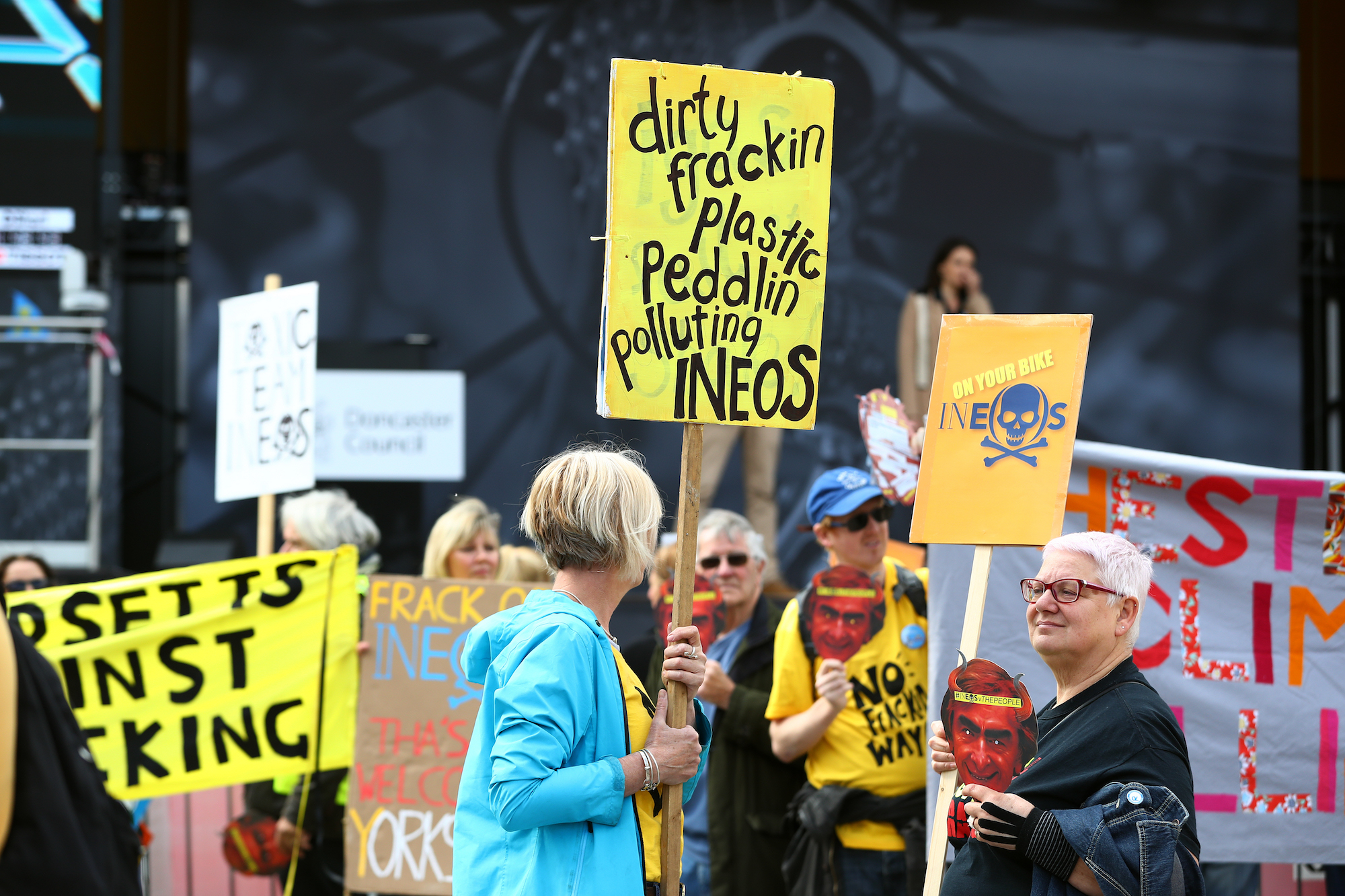Protesters voice their anger over Ineos sponsorship at Tour de Yorkshire
Environmental campaigners have made their presence felt on the team’s first official race day


Protesters have made their voices heard as Team Ineos sets off on their first race day after the official launch.
The British team made their debut under the new name at the Tour de Yorkshire on Thursday (May 2), after the switch from Team Sky.
But it wasn’t a day of universal celebration, as environmental campaigners protested outside the Team Ineos bus at the start of stage one.
Chemical company Ineos has attracted condemnation from environmentalists because of its business practices, including plastic production and links to fracking.
>>> Critics say chemical company Ineos is ‘greenwashing’ with Team Sky sponsorship
One protester at the start of the race in Doncaster, who lives in an area where Ineos could carry out fracking, told Cycling Weekly: “I’m here because I’m against Ineos and their greenwashing assault on a number of sports.
“We don’t want fracking. We don’t believe we need it; there are alternatives out there like wind, solar and tidal.
The latest race content, interviews, features, reviews and expert buying guides, direct to your inbox!
“There are a lot of cycling fans that have come forward and said how disappointed they are.
“We’ve come across a number of cycling fans that are not happy with this sponsorship and we’re here to raise awareness, show who Ineos really are and get our image across.
“For the riders, it’s disappointing to see these guys draped in Ineos colours and their name, their image.
“For me, the moral compass is totally out of calibration.”

The announcement that Team Sky would continue under a new sponsorship came earlier this year, as Britain’s richest man Sir Jim Ratcliffe and his firm Ineos stepped in.
While many welcomed the news that Britain’s only WorldTour team would survive, some raised concerns about the new backer.
Ineos is one of the largest manufacturers of chemicals and oil products in the world, including the production of solvents, biofuels, plastics, synthetic oils and insulation materials.
Small plastic pellets used by plastic producers like Ineos can wind up in the sea, harming wildlife and polluting the water.
The firm has committed to ensuring that these pellets do not end up in the marine environment through its Zero Pellet Loss Programme, changing the way the products are handled.
Another environmental concern centred around Ineos is the practice of fracking – drilling into the earth and blasting liquid at the rock to release natural gas inside.
Ineos has permission to explore for shale gas in parts of the north of England and the East Midlands.
Fracking is a controversial process because of the environmental impacts of transporting huge amounts of water and the risk of earth tremors.
Professional cycling does benefit from the sponsorship of a number of gas and plastic-linked companies, including Russian gas supplier Gazprom and French oil and gas company Total.
When asked about those cycling sponsorships, the protester told Cycling Weekly: “I only have time to fight one thing at a time. I’m involved in anti-fracking in my spare time. I’ve got a full time job, a young family, I don’t have time to fight everything.”
Many have highlighted the fact that Team Sky were heavily involved in environmental campaigns that aimed to raise awareness of single-use plastics.

The team unveiled a new Tour de France kit in 2018 that featured images of Orcas, while also vowing to eliminate single-use plastics from the outfit by 2020.
During the Team Ineos launch in Yorkshire on Wednesday (May 1), four-time Tour de France winner Chris Froome said the team would continue their commitment to reducing single-use plastic consumption.
Founder and chairman of Ineos Ratcliffe, also responded to criticism aimed at the company.
He said: “We are going to improve technologies and recycling, a lot of science going to help solve that problem,”
Ratcliffe said. “But you look at cycling, [bikes] are essential for modern life. You go to a hospital, it’s all plastic, your car is half plastic, your food is wrapped in plastic. Plastic does have value in our modern life whether you like it or not, and we don’t chuck it in the sea. We do what we can to help, but we can’t solve the whole problem.”
>>> Why it’s up to cycling fans and the media to hold team sponsors accountable for their actions
Ratcliffe added: “Team Ineos is a completely different thing to the fracking issue,” added Ratcliffe.
“If I look at the UK, we are sat on some potentially extraordinary reserves. Gasses are great fuel, it’s a clean fuel compared to coal or importing gas. It creates jobs and investments. Why wouldn’t you look at exploring that in the UK? I think it’s outrageous that the government listens to a noisy minuscule minority instead of looking at the science, which is what they should do.”
Cycling Weekly has approached Team Ineos for comment.
Alex Ballinger is editor of BikeBiz magazine, the leading publication for the UK cycle industry, and is the former digital news editor for CyclingWeekly.com. After gaining experience in local newsrooms, national newspapers and in digital journalism, Alex found his calling in cycling, first as a reporter, then as news editor responsible for Cycling Weekly's online news output, and now as the editor of BikeBiz. Since pro cycling first captured his heart during the 2010 Tour de France (specifically the Contador-Schleck battle) Alex covered three Tours de France, multiple editions of the Tour of Britain, and the World Championships, while both writing and video presenting for Cycling Weekly. He also specialises in fitness writing, often throwing himself into the deep end to help readers improve their own power numbers. Away from the desk, Alex can be found racing time trials, riding BMX and mountain bikes, or exploring off-road on his gravel bike. He’s also an avid gamer, and can usually be found buried in an eclectic selection of books.
